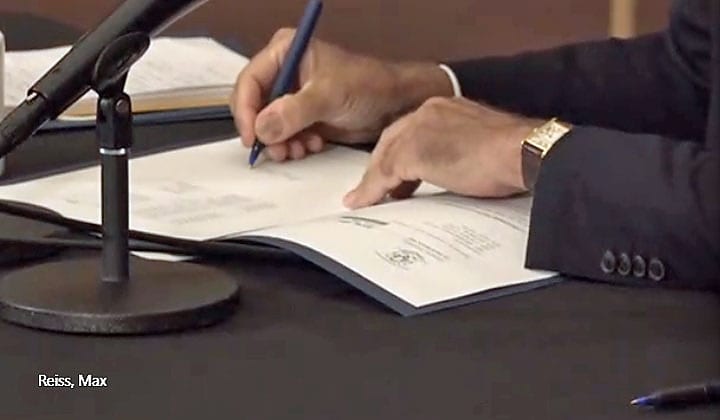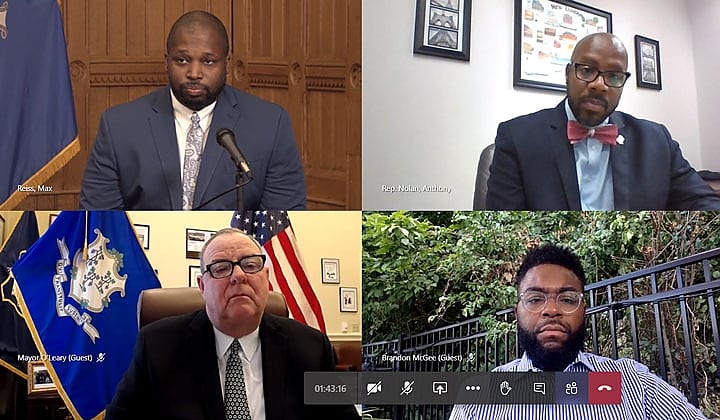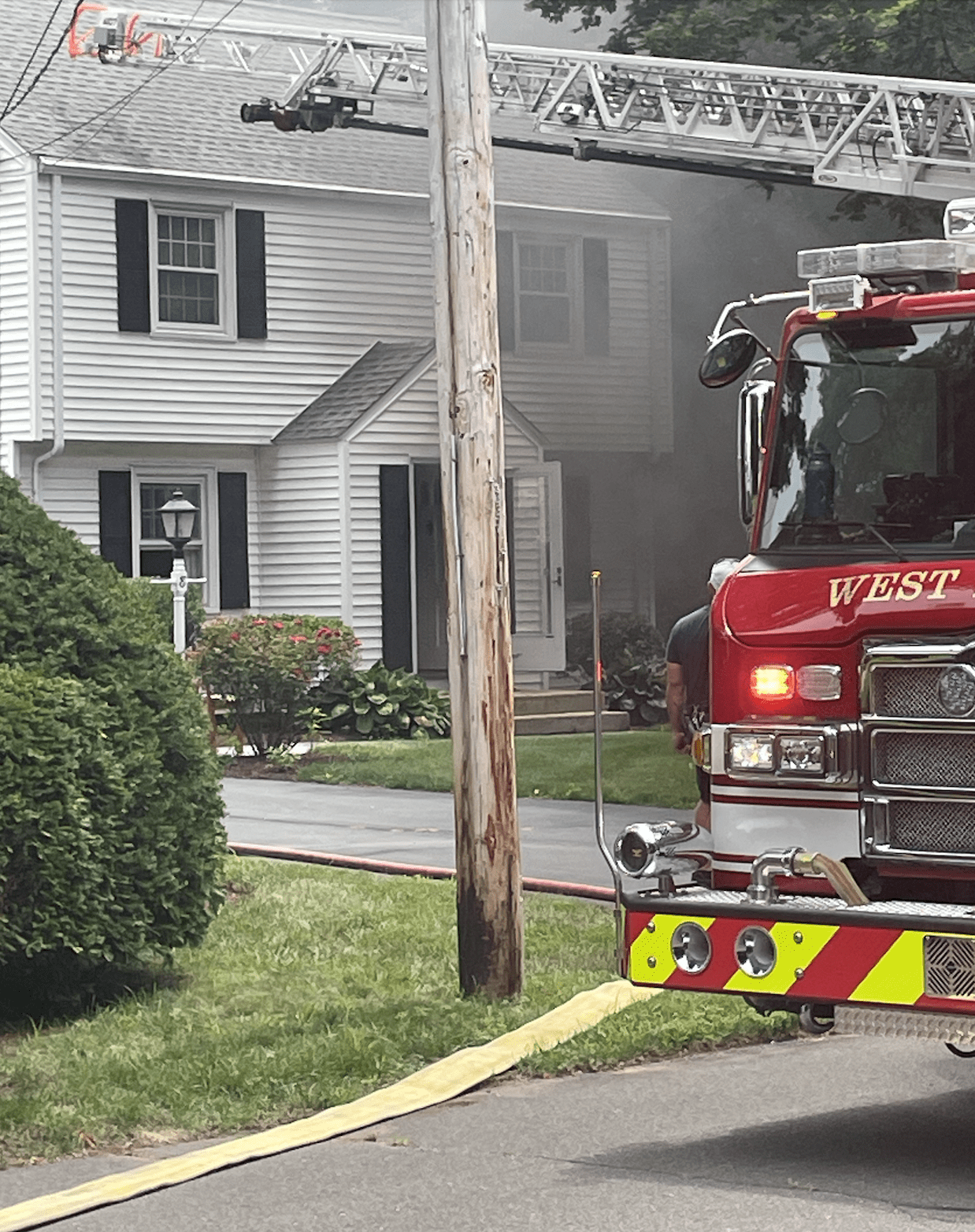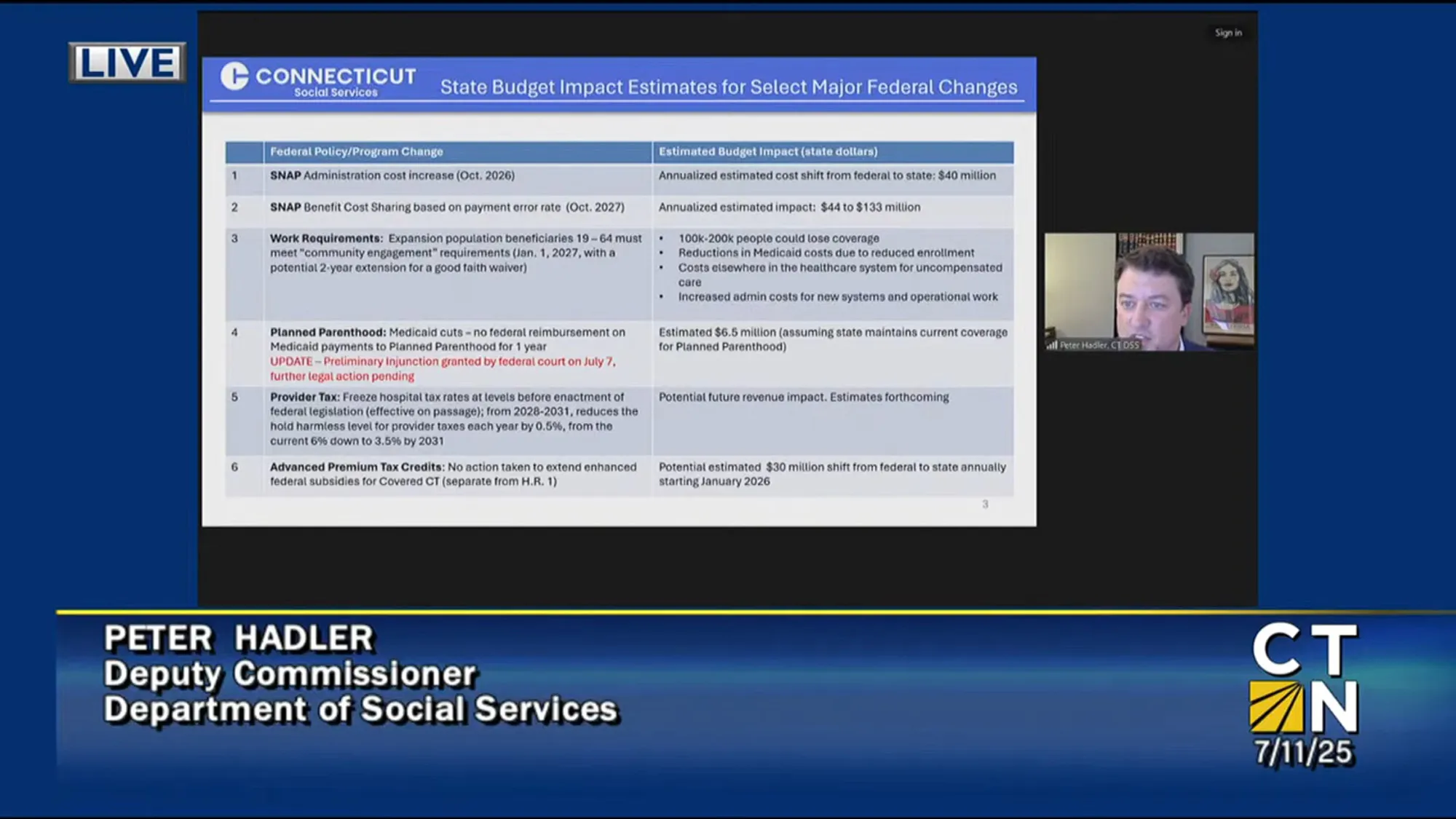Lamont Signs Police Accountability into Law

Audio By Carbonatix

Gov. Lamont signing the police accountability bill. CTNewsJunkie.com image courtesy of governor's office
The qualified immunity portion of the bill doesn’t take effect until July 2021, and the use-of-force provision will take effect in April 2021.
By Christine Stuart, CTNewsJunkie.com
Gov. Ned Lamont signed the police accountability bill into law Friday, but the work is just beginning.
The bill caused an uproar among police officers in Connecticut, who were concerned with a number of provisions, including changes to qualified immunity. The bill was crafted in the wake of George Floyd’s death to address policing issues here.
“I think at the end of the day we all understand how important it was and what a big step this is,” Lamont said before signing the bill.
Paul Mounds, Lamont’s chief of staff, met with four police unions Thursday. He said, “There’s going to be continuous conversations as it deals with the bill, particularly on the implementation.”
Both sides agreed that more work needs to be done to clear up misunderstanding.
Police worry that it would increase their personal liability on the job and perhaps cause officers to reconsider the profession.
“I want to emphasize that this was not a bill that was done in haste or unnecessary rush,” Rep. Steve Stafstrom, D-Bridgeport, said. “In fact, the bill was done purposefully to respond to the call for change and the need for quick change.”
Floyd’s death prompted widespread, sustained protests in Connecticut and across the globe.
However, Sen. Gary Winfield, D-New Haven, who has been working on this issue for more than 20 years, pointed out during the debate earlier this week that the bill was about Connecticut, which is not immune from the issue.
In 2019, 24 deadly use-of-force and in-custody death investigations were conducted by state and municipal police and the Department of Correction, according to Chief State’s Attorney Richard Colangelo. There were at least 19 similar investigations in 2018, he said.

Sen. Gary Winfield (top left), Rep. Anthony Nolan (top right), Waterbury Mayor Neil O’Leary (bottom left), Rep. Brandon McGee (bottom right). CTNewsJunkie.com image courtesy of governor’s office
On Friday, Waterbury Mayor Neil O’Leary, who is a retired police chief, said he believes there’s still “an enormous amount of misinformation about this bill.”
He said it will be incumbent on lawmakers to make sure law enforcement understands what this law does and doesn’t do.
He said senior officers eligible to retire may consider it if they aren’t well-informed about what this bill actually does. O’Leary said it won’t inhibit younger officers from being officers.
O’Leary said he believes the bill will protect good police and protect them from “rogue officers whose actions erode the public trust.”
Police are still largely opposed to the law, though.
It requires them to display their names and badge numbers on the outside of their clothes. It allows cities and towns to create civilian review boards that have subpoena power; requires body and dashboard cameras; and creates a new independent office of inspector general to investigate deadly use-of-force incidents.
“You know us, we have no problem with transparency and accountability,” Andrew Matthews, president of the Connecticut State Police Union, said. “We’ve had body cameras, dashboard cameras, our name tags and badges being required to be displayed for a long time. We have no problem with training. We have no problem with oversight of our membership.”
However, there are provisions in the bill that the state police don’t like, including qualified immunity.
Matthews said, “This bill has a psychological impact on every police officer. And they’re worried about not just being disciplined. They’re worried about being terminated. They’re worried about being arrested or prosecuted and sent to prison.”
The qualified immunity portion of the bill doesn’t go in effect until next July. The use-of-force provision doesn’t go into effect until next April.
“It’s always been my intent to work on language tweaks as we implement this bill,” Stafstrom said.
Republished with permission from CTNewsJunkie.com, all rights reserved.
Like what you see here? Click here to subscribe to We-Ha’s newsletter so you’ll always be in the know about what’s happening in West Hartford! Click the blue button below to become a supporter of We-Ha.com and our efforts to continue producing quality journalism.




[…] from Bridgeport, played an important role as House Chair of the Judiciary Committee, in the new police accountability legislation that was passed by the Connecticut General Assembly in a spec…. The new law creates the office of an Inspector General to investigate complaints of police […]